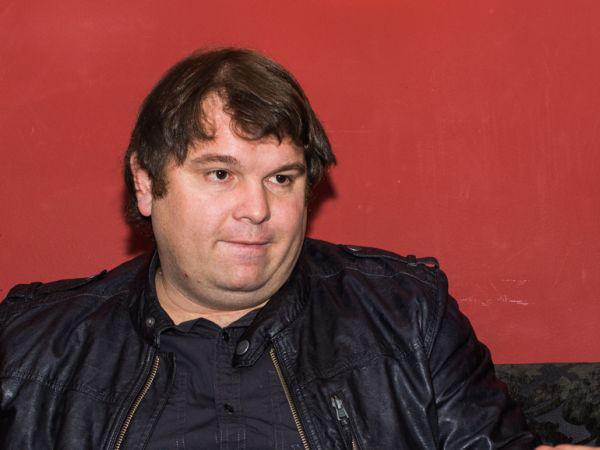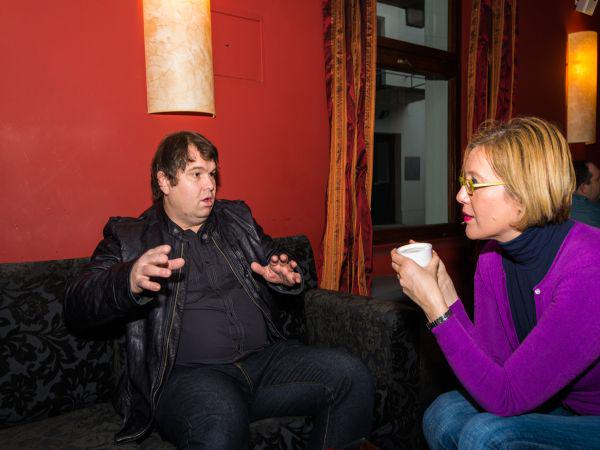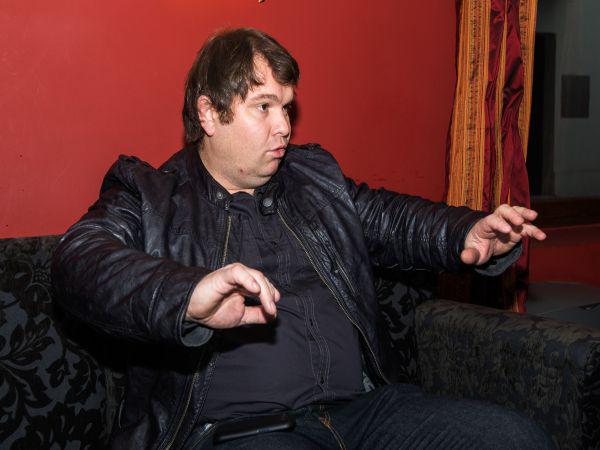
“The workforce in Slovenia has become more expensive than Austria. I’m not talking about production workers, but about employees with slightly higher salaries – the net salary of EUR 1,500 comes with an additional EUR 1,200 in taxes in Slovenia, but only EUR 600–700 in Austria. This means that the Austrian worker is cheaper by 600 euros. That’s a phenomenon.”


“The public administration should look at things from the perspective of a business or an owner: first, the procedures need to be simplified, and when that is implemented, you realize you need fewer people. And you can also give them a chance for re-direction.”
A kitchen model called Les (Wood), made from solid Slovenian timber of acacia and maple, and designed by the architect Julian Krapež, won the main award for design at the recent Ambient furniture fair in Ljubljana. We’ve talked to Potočnik about his opinion about the situation in the Slovenian economy and asked him how he managed to keep his company successful in a bankrupt industry. You can have a look at some of Potočnik’s kitchen models here.
Mr Potočnik, first of all, could you please explain the phenomenon of a successful company in a bankrupt timber industry.
The management of the timber industry factories simply didn’t detect this decline in the years when efforts should have been directed towards development and market breakthrough. They worked with the markets of Slovenia and countries of the former Yugoslavia, which was the simplest way, no one focused on developing a brand, an overall corporate identity. They were happy with being subcontractors of “Ikeas’ and the like. But now Slovenia is much too expensive for Ikea.
The workforce in Slovenia has become more expensive than Austria. I’m not talking about production workers, but about employees with slightly higher salaries – the net salary of EUR 1,500 comes with an additional EUR 1,200 in taxes in Slovenia, but only EUR 600–700 in Austria. This means that the Austrian worker is cheaper by 600 euros. That’s a phenomenon.
When I’m having a conversation about salaries with my partner in Vienna, I’m left speechless: we need to be 20 per cent cheaper on the market to be even taken into account, since we’re trying to succeed as a Slovenian company with more expensive workforce and materials – those are cheaper in Austria, too. The conditions there are simply better. Big Slovenian companies that didn’t make a successful breakthrough and brand cannot succeed. There’s no room for the so-called ‘loan trading’ in Slovenia anymore, the country has become too expensive.
Why are we too expensive?
Given the size of the country, the apparatus of public administration is much too strong. They can go on strikes and do whatever they want, as far as I’m concerned – considering the fact how much it’s being produced, the cost of public administration is too big. It needs to be covered by those who still work, but there’s fewer and fewer of us. Simply put, the situation is going south. If there’s no breakthrough, we won’t achieve a thing.
What changes would need to take place for a breakthrough?
The public administration should look at things from the perspective of a business or an owner: first, the procedures need to be simplified, and when that is implemented, you realize you need fewer people. And you can also give them a chance for re-direction.
For example, we’ve applied to a tender; we’d like to design a new product – a children’s room. We have a genius idea and an opportunity to do this, but we lack capital. If we managed to get the money, we’d make a global brand of children’s furniture in a few years, since it’s a completely new market strategy.
What are the chances of getting a subsidy, since you’re not a minister (t/n: related to the recent controversy of a company owned by the economy minister getting a subsidy)?
If the company is successful, I think it deserves a subsidy. We keep applying to subsidy tenders – sometimes we get some money, sometimes we don’t.
In your opinion, are subsidies a good means of stimulation for the economy or not?
There could be more of them! As one of the measures in the economy, they’re a good thing if they’re performed the way they’re designed to be. Our company made the biggest jump forward in 2008. After getting a subsidy for new technology, we made the most out of is and reached a breakthrough. We got EUR 200,000, and that’s when we stated growing, due to the fact that we invested the money into the new technology. Since our space is limited, we also bought 1,700 m2 from the Jelovica company.
So in your opinion, the development of Slovenian timber industry lies in investing money into exclusive brands? Everyone is sorry about the bankruptcy of timber industry, but nothing changes!
Of course. I visit the fairs in Milan and Köln every year – if you go there, you’ll understand what’s happening immediately. The Köln fair offers a clear picture of how much individual countries help the industry: Slovenia will have only one exhibitor there in January, and as far as I’ve heard, the company may get a subsidy worth EUR 8,000–9,000 – if at all –; whereas the stand costs EUR 150,000. German companies that have stands 10 times larger from, let’s say, 10 m2, have their costs covered by the chamber of commerce or the government. They pay the stands for the exhibitors in their own country. There are at least three Bosnian companies in Germany, all subsidized by the government.
Things in Slovenia started to change a year or two ago, but before that, no one would give anything. There’s not enough readiness to help – those bureaucrats should know what this is all about! I have a feeling there was a lot of money in Slovenia a few years ago, but this money got “eaten” somewhere else instead of having been invested into smart projects. I have nothing against institutions of higher education, but …
What would improve the situation in Slovenia? What do you expect from the new economy minister?
I expect the minister to support export and those with ideas and will. But first and foremost, to create a positive atmosphere. People keep talking about the crisis. I don’t think we’re in a crisis. We’re in a situation that has changed. This will last for some time, and we need to get used to it. Those who’ll adapt quickly will progress.
Those who constantly complain about the things they can’t do, will never be able to succeed. Will needs to be shown. First, we need to create a positive atmosphere. The people still have enough money in the banks; Slovenians are known for having a lot of savings in the banks. This money – since it hasn’t been spent – should be directed into the economy, so that things would move. If the economy is strong, the public administration can be as large as it is at the moment, as far as I’m concerned. But we cannot sustain it at the moment.
“The workforce in Slovenia has become more expensive than Austria. I’m not talking about production workers, but about employees with slightly higher salaries – the net salary of EUR 1,500 comes with an additional EUR 1,200 in taxes in Slovenia, but only EUR 600–700 in Austria. This means that the Austrian worker is cheaper by 600 euros. That’s a phenomenon.”
“The public administration should look at things from the perspective of a business or an owner: first, the procedures need to be simplified, and when that is implemented, you realize you need fewer people. And you can also give them a chance for re-direction.”


































































